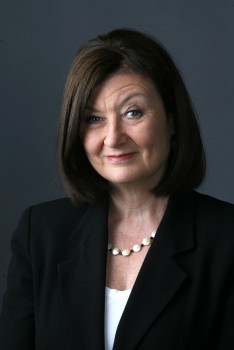McClymont takes aim at lack of public interest test in government’s new anti-terror laws
 Leading investigative journalist Kate McClymont has criticised the federal government’s new anti-terror laws describing elements of the recently passed legislation as “repugnant” and arguing it is a “great concern” that there is no “public interest” exception.
Leading investigative journalist Kate McClymont has criticised the federal government’s new anti-terror laws describing elements of the recently passed legislation as “repugnant” and arguing it is a “great concern” that there is no “public interest” exception.
The former Gold Walkley winner made the remarks during her keynote speech at the Andrew Olle Lecture in Sydney last night telling the audience that society should protect the public right to know and that it was “vital” that a public interest exemption be added to the new laws.
Citing the 1983 ASIS raid on Melbourne’s Sheraton Hotel, McClymont said: “It is totally repugnant that incidents such as these would not be able to be reported because of the Government’s new anti-terror laws. It is of great concern that there is no “public interest” exception to these laws.
“We must protect the public’s right to know and it is vital that a ‘public interest’ exemption is added to these new laws.”


The government is not interested in freedom of the press, just freedom from the press.
Reporting on the illegal activity of government is illegal.
Mass surveillance.
War cult.
Modern Australia. Uncomfortable yet?
Then again there are the other points of view.
“Loose lips sink ships” it was called during the second world war. Information had to be controlled for the common good. Of course, politicians are inclined to give themselves airs and assume more importance than they are due, but that is yet another view.
Then there is the view of the journalist who is so eager to hunt down a juicy story, that he/she is even prepared to bend the facts or otherwise pervert the course of events to achieve the scoop. The Brixton Riots in London springs to mind, where journalists and photographers were paying young lads to set fire to targeted empty shops.
Public information , public security, and public naivety, all link together sometimes.
Don’t blame me … I didn’t vote for them. And I suggest you don’t as well when you next get the chance in any election – local, state of federal. Send the only message they can’t stop (well haven’t tried to yet) via the ballot box.
“basic tenants of our profession: ‘balance, fairness and accuracy’” – the kind of tenants everyone wants.
Hi Deej,
Thanks for flagging – while the best tenants they’re the wrong ones.
Cheers,
Alex – editor, Mumbrella
Sorry to be flippant, but I’m not sure whether Peter Greste is paying the price for upholding “the basic tenants of our profession”; not unless he became a real estate agent while in Egypt.